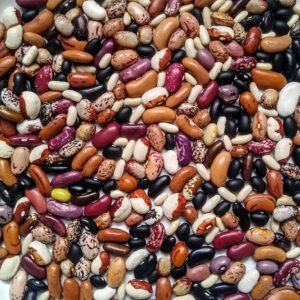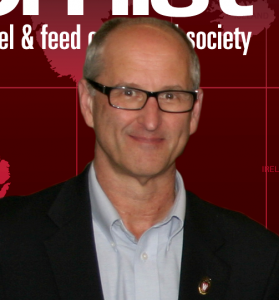
 Looking at the agricultural news of the day, I read about how some genetically engineered corn is failing, as corn rootworms evolve to overcome the insecticide contained in the corn. And weeds resistant to Roundup are springing up all over. Does this sound familiar to you? It should. Much of our agricultural system is focused on new “silver bullets,” as we race against evolution to develop new herbicides, insecticides, and single gene disease resistances faster than nature can overcome them.
Looking at the agricultural news of the day, I read about how some genetically engineered corn is failing, as corn rootworms evolve to overcome the insecticide contained in the corn. And weeds resistant to Roundup are springing up all over. Does this sound familiar to you? It should. Much of our agricultural system is focused on new “silver bullets,” as we race against evolution to develop new herbicides, insecticides, and single gene disease resistances faster than nature can overcome them.
Attendees of OSA’s Organic Seed Growers Conference on January 19-21, 2012, will get to hear about a different paradigm. Keynote speaker Dr. Bill Tracy will be talking about how, for the long-term health of the planet, agriculture needs to move beyond these silver bullet approaches and develop fully integrated systems. Bill will talk about how organic agriculture can create these integrated systems, but to complete the system, organic farmers need access to high quality organic seed.
Bill Tracy is well qualified to speak about this topic, having spent time working in both conventional and organic agriculture. He has been a professor of agronomy and a sweet corn breeder at the University of Wisconsin – Madison for over 25 years. Currently, he is also serving as the Interim Dean and Director for the College of Agriculture and Life Sciences. In that time, he has developed new sweet corn varieties, conducted fundamental research into sweet corn genetics, mentored dozens of graduate students in plant breeding (including me!), and has been active in the Seeds and Breeds for 21st Century Agriculture initiative.
Bill has also been a friend to organic agriculture. He has worked with OSA on our plant breeding advisory committee and formally as a board member. He has also worked with organic farmers to breed open-pollinated sweet corn that is adapted to organic systems, with cold tolerance, early vigor, disease and pest resistance, and high quality for eating. For those of you who are looking to help agriculture move beyond the silver bullet into a sustainable future, Bill’s talk will be one of many that will inspire you. From farmer-participatory breeding to local seed systems to seed cleaning techniques, you will come away from Port Townsend, Washington, full of ideas on how to strengthen organic seed systems and support our best chance for a viable and durable agriculture.
